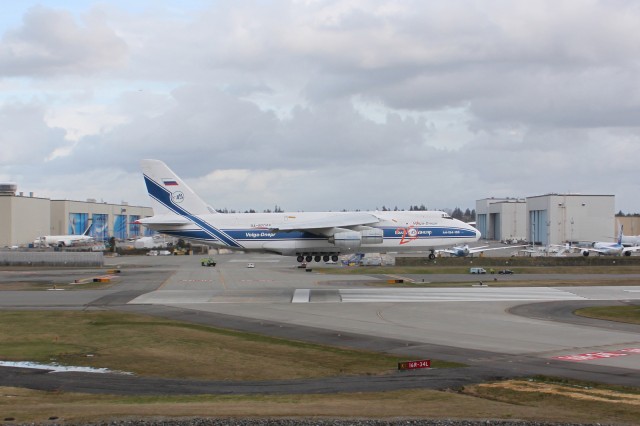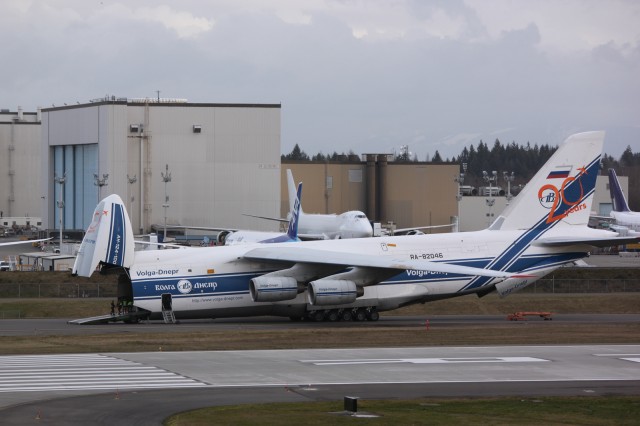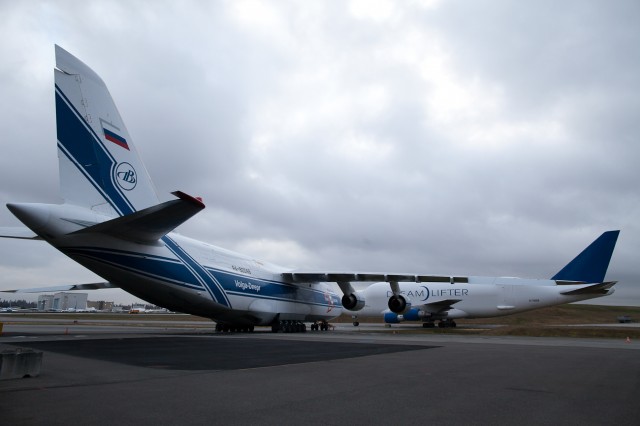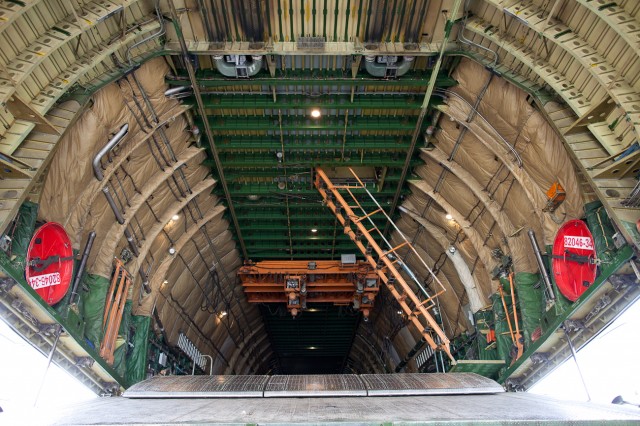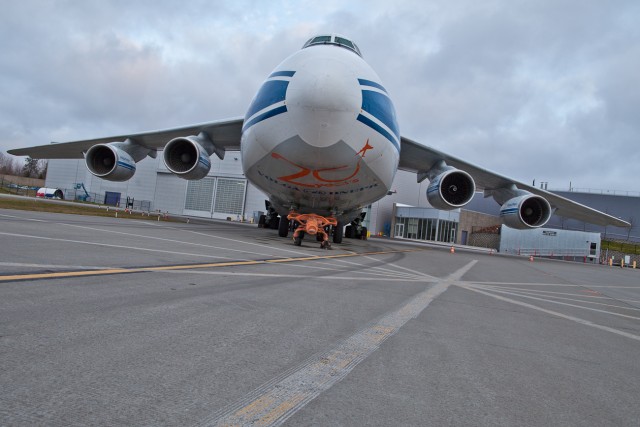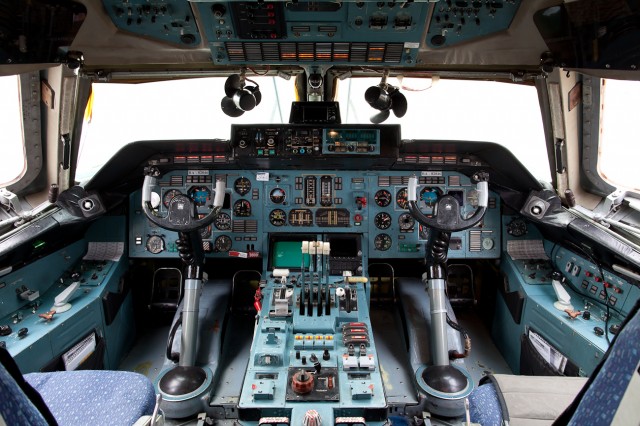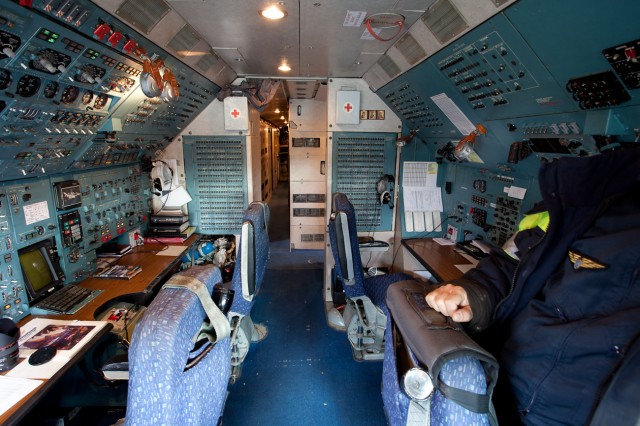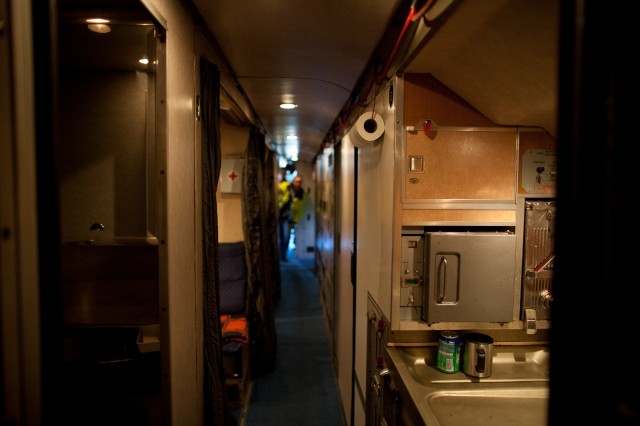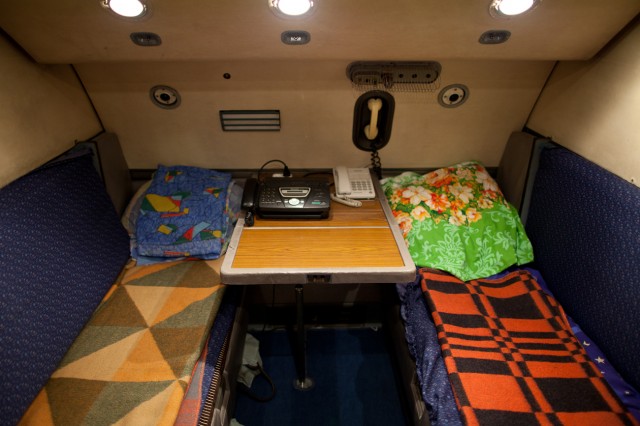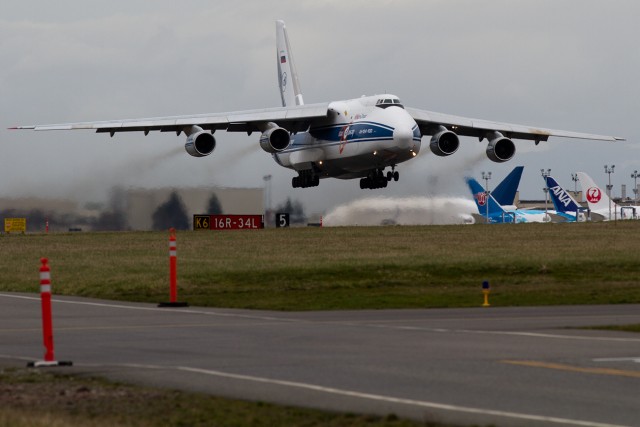Check that off my bucket-list: sitting in the command seat of an Antonov AN-124.
This aircraft is big. The AN-124 is the world’s second largest aircraft, behind its larger cousin, the Antonov AN-225 and it is comparable in size and payload to the Boeing 747-8F and the Lockheed C-5 Galaxy.
Getting solid numbers on how many have been built and are currently flying is not easy. From what I can find, it appears anywhere from 40 to 60 AN-124s have been built, with over 25 still in service today.
The AN-124 was initially designed in the 1970’s to provide heavy transport for the Soviet military. The first airframe was started in 1979 and the first flight took place in December 1982.
BONUS: Interactive cargo loader for the AN-124
Antonov ceased building the AN-124 after the fall of the Soviet Union, but due to demand, the AN-124 was put back into production and is still currently being built and mostly sold to private airlines who fly cargo around the world.
This past Saturday an AN-124 was spotted heading to Paine Field in Everett, WA. A group of AvGeeks rallied and headed to watch her land from the Strato Deck on the Future of Flight. I have seen the AN-124 a few times passing in person, but never in action — she is an impressive beast.
| Antonov AN-124 | Boeing 747-8F | C-5 Galaxy | Antonov AN-225 | |
| Payload | 330,000lbs | 295,800lbs | 270,000lbs | 418,834lbs |
| Length | 226ft 3in | 250ft 2in | 247ft 1in | 275ft 7in |
| Wingspan | 240ft 5in | 224ft 7in | 222ft 9in | 290ft 0in |
| Height | 68ft 2in | 63ft 6in | 65ft 1in | 59ft 5in |
| Max Take Off Weight | 893,000lbs | 987,000lbs | 840,000lbs | 1,410,958lbs |
After landing at Paine Field, the AN-124 parked on the taxi way, blocking it. There was a Southwest Airlines Boeing 737 that was looking to take off and they had to taxi down the runway and turn around to make it. It was a nice comparison of size.
One thing I did not realize on the AN-124 is that the body can move down (much like a bus will kneel) to make the loading and unloading of cargo easier. Once the large nose lifted up, the plane lowered and two Boeing 747-8 fuselage panels were removed.
The aircraft also has an internal crane where a flat bed can pull right up to the aircraft and cargo can easily be loaded and unloaded.
I was lucky enough to get access to the inside of the aircraft and what a trip — it was almost like traveling through time. The flight deck was huge, seating six people: two pilots, two navigators and two engineers. I am quite certain it was larger than my first apartment in college.
Behind the flight deck is a crew rest area with a lavatory, small kitchen and two seating areas that can convert into beds. There is a second upper deck behind the wings (we were not able to view) that is designed to hold up to 80 passengers or additional cargo.
Walking around in the AN-124 felt more like being in a submarine than it did an aircraft. Things seemed to be laid out in a utilitarian way, not necessarily for looks or atmosphere. But really… what would you expect from the aircraft? It was designed for military operations.
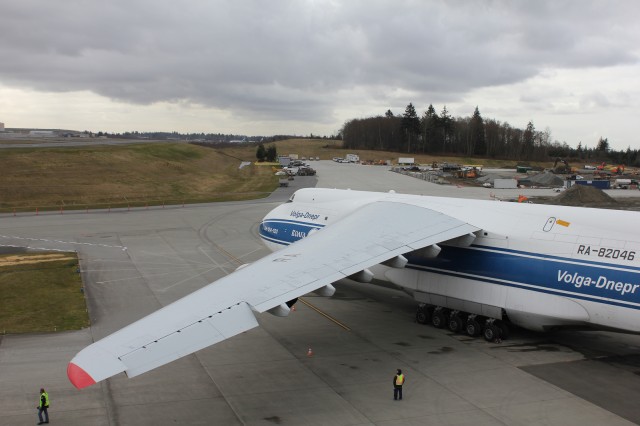
The AN-124 as seen from the Strato Deck on the Future of Flight — the Dreamlifter was moved at this point.
The AN-124 is quite versatile in what it can haul. According to Antonov’s website, the plane been used to deliver,” a 90 ton hydraulic turbines, the Liebherr large dimension mobile crane, the USA Euclid mine truck, the fuselage of the Tu-204 passenger aircraft, a 109 ton locomotive, General Electric GE90 aircraft engines, various combat vehicles, Lynx anti-submarine helicopters, a spaceship in its container and other unique cargoes.”
Antonov continues to provide additional packages to improve the payload, range, technology and all around cost effectiveness of the AN-124. It is likely we will be seeing these beautiful flying machines well into the future.
I will also be sharing a video of the AN-124 shortly, so stay tuned. Aircraft data from Wikipedia.org
GALLERY OF ADDITIONAL ANTONOV AN-124 PHOTOS
[nggallery id=38]
Want more photos? Of course you do, here are 21 additional AN-124 photos on Flickr. And a HUGE thanks to Christine with the Future of Flight and the others who helped to make this possible!
 |
This story written by…David Parker Brown, Editor & Founder. David started AirlineReporter.com in the summer of 2008, but has had a passion for aviation since he was a kid. Born and raised in the Seattle area (where he is currently based) has surely had an influence and he couldn’t imagine living anywhere else in the world. |
